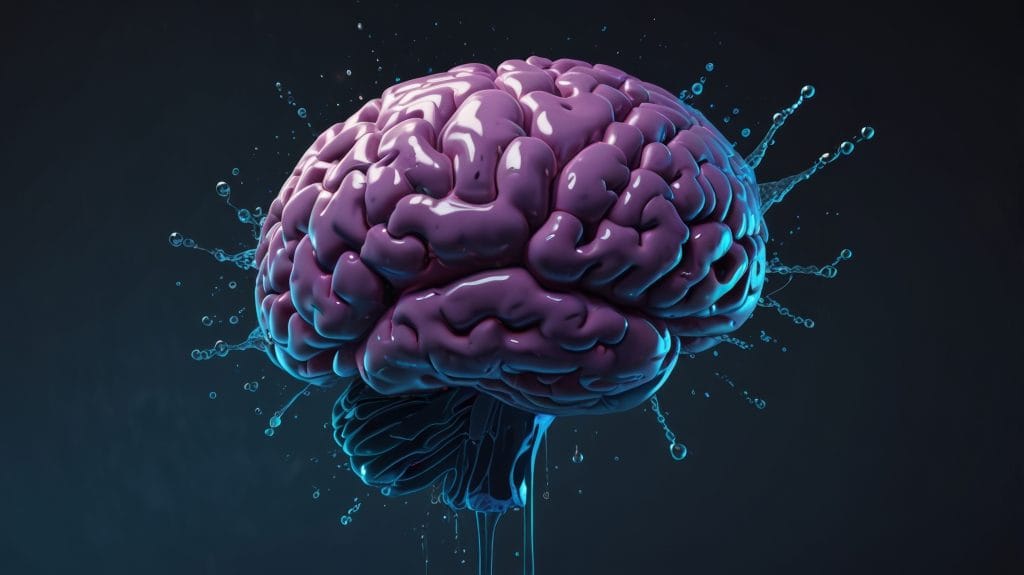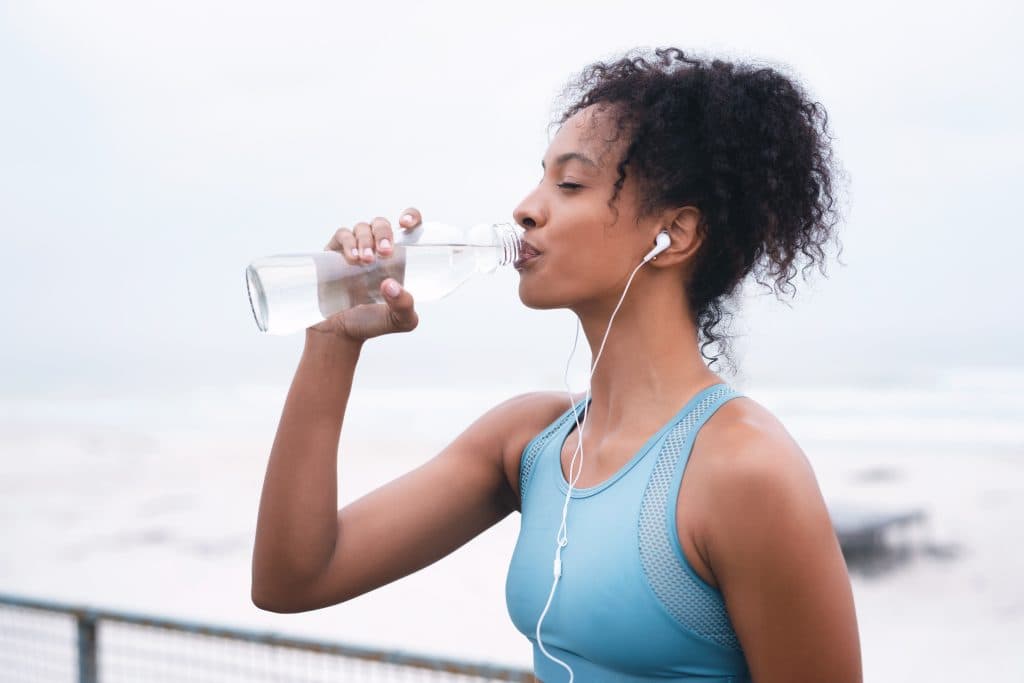Water is more important for your brain than you might think, especially if you have ADHD or are neurodivergent. Even being a little dehydrated can mess with things like focus, memory, and mood – and those are already tough enough to manage, right? If you’ve noticed feeling extra distracted or irritable, it could be your body’s way of saying, “I need water!”. In this post, we’ll chat about water and the neurodivergent brains, looking at why staying hydrated and drinking enough water matters for those with ADHD. We will offer easy hydration tips, and explain how something as simple as sipping water can support your focus and mood. Whether you’re looking for quick wins or want to make hydration part of a bigger self-care plan, this guide is here to help.
Staying properly hydrated helps keep your brain running smoothly, particularly when it comes to producing things like dopamine, which is super important for focus and emotional balance. For people with ADHD (attention deficit hyperactivity disorder), this can make a big difference in how well they manage daily challenges. Plus, being hydrated is linked to better sleep, which everyone knows is key to mental health and a better day tomorrow.

Why hydration matters for neurodivergent brains
Water plays a huge role in keeping your brain working at its best. For an autistic person, staying hydrated is especially important because dehydration can make things like focus, memory, and mood even harder to manage. When you’re dehydrated, your brain struggles to stay sharp, and you might notice more headaches, less energy, and an overall “foggy” feeling.
Unlock peak brain performance with science-backed biohacks. Join free now & get your guide for just £4.99 (45% off)!

For a neurodivergent person, dehydration can increase cognitive fatigue and make it even harder to stay on task. Your attention span shortens, and tasks that require focus become frustratingly difficult. On top of that, mood regulation is often impacted – dehydration can lead to irritability, increased anxiety, and stress, which are already challenges for many neurodivergent people.
Keeping hydrated means you’re giving your brain what it needs to produce neurotransmitters like dopamine. Dopamine helps with focus and emotional balance, so it’s super important for people with ADHD. Something as simple as drinking enough water can go a long way in supporting your brain’s function and helping to manage symptoms.
How much water do you need?
So, how much water should you actually be drinking? While there’s no one-size-fits-all answer, a general rule is to aim for about 6-8 glasses of water a day. But if you’re more active, or if you struggle with focus and energy, you might want to increase that a bit. It’s all about finding what works for your body.
If you’re dealing with ADHD or other neurodivergent conditions, staying consistent with your hydration can be a game changer. Keeping a water bottle within reach is a great way to remind yourself to drink throughout the day. If plain water doesn’t excite you, try adding a slice of lemon or even some electrolyte tablets to help your body absorb the water more effectively.
It’s also worth thinking about other factors like sleep and exercise. If you’ve had a rough night of sleep or are planning to be more physically active, make a point to up your water intake. Even mild dehydration can leave you feeling sluggish, so it’s better to stay ahead of it. Keep an eye on how you’re feeling and adjust your water intake to match your needs.
The connection between water and sleep
You’ve probably heard that good sleep is essential for managing ADHD symptoms, but did you know that staying hydrated can actually help improve your sleep quality? It’s true – when you’re properly hydrated, your body works better at night, helping you fall asleep faster and stay asleep longer.
Dehydration can make it harder to get a good night’s rest, which leads to a vicious cycle: poor sleep can worsen the ADHD struggle, causing trouble focusing and mood swings, and being overtired might make it even harder to remember to drink enough water. That’s why staying on top of your hydration during the day is so important – it sets you up for a better night’s sleep.
Try sipping water regularly throughout the day, but don’t overdo it right before bed, or you might find yourself waking up for bathroom trips in the middle of the night. Striking that balance can help ensure that you’re getting the deep, restorative sleep that supports better focus, emotional regulation, and overall wellbeing the next day.
Practical hydration tips for people with ADHD
Staying hydrated sounds simple, but for many people with ADHD, keeping up with it throughout the day can be a real challenge. The good news? There are plenty of easy tricks to help make drinking water a regular habit.
-Set reminders: Use your phone or an app to remind you to drink water at regular intervals. Sometimes, just having a little nudge is enough to keep you on track.
-Keep water nearby: Out of sight, out of mind – that’s how it goes, right? Keep a water bottle on your desk or in your bag so you’re always ready to take a sip.
-Flavour your water: If plain water feels a bit boring, try adding a splash of fruit juice, slices of cucumber, or even a mint leaf to make it more appealing.
-Track your intake: If you like a bit of structure, you could set hydration goals and track how much you’re drinking throughout the day. There are lots of apps designed to help with this.
-Hydrate with food: Don’t forget, water-rich foods like cucumbers, oranges, and watermelon are great ways to stay hydrated too.
By building small, easy habits into your day, you can stay hydrated without too much effort. Over time, you’ll likely notice improvements in your focus, mood, and even your sleep!

Hydration as part of a holistic ADHD management plan
While staying hydrated is important, it’s just one piece of the puzzle when it comes to managing ADHD. For many people, a combination of strategies works best. Alongside drinking enough water, there are other elements that can help improve focus, mood, and overall wellbeing.
-Diet: What you eat can have a big impact on how you feel. Eating nutrient-dense foods, especially those rich in omega-3s and magnesium, can support brain function and help regulate mood. It’s also important to avoid ultra process foods. Pairing a healthy diet with proper hydration ensures your body is getting what it needs to function well and help to avoid the need for stimulant medication.
-Exercise: Regular physical activity is a great way to boost focus and reduce stress. When you exercise, make sure you’re staying hydrated – it’ll help with your energy levels and recovery.
-Supplements: For some, supplements like magnesium or electrolytes can help balance hydration and support brain health. It’s always a good idea to consult with a healthcare provider before adding any new supplements to your routine.
-Sleep: As we mentioned earlier, hydration is closely linked to sleep quality. Prioritising good sleep hygiene, combined with staying hydrated, can set you up for better focus and emotional regulation during the day.
By seeing hydration as part of a bigger self-care routine, you can help your brain and body stay in balance. When combined with other strategies, drinking enough water becomes an easy and effective way to manage ADHD symptoms more naturally.
The role of electrolytes in hydration for ADHD
Hydration isn’t just about drinking water—electrolytes play a key role in helping your body absorb and use that water effectively. Electrolytes are minerals like sodium, potassium, and magnesium that help regulate fluid balance, muscle function, and even cognition. For people with ADHD, ensuring that your hydration routine includes enough electrolytes can support better focus and energy levels throughout the day.
When you sweat during exercise or even lose fluids through stress, your body loses electrolytes. Without replacing them, you might feel tired, foggy, or even irritable—symptoms that can worsen ADHD. Drinking water with added electrolytes can help you stay hydrated more efficiently, especially if you’re physically active or struggling with energy dips.
So, how can you add electrolytes to your hydration routine? You don’t need fancy sports drinks that are loaded with sugar. There are plenty of low-sugar electrolyte tablets or powders that you can easily dissolve in water. Foods like bananas, spinach, and avocados are also rich in electrolytes, so including them in your diet can support hydration naturally.
By paying attention to both your water intake and your electrolyte balance, you’ll be able to support better brain function, improve energy levels, and stay sharp throughout the day—making it easier to manage ADHD symptoms in a natural and effective way.
Conclusion: Small steps towards better focus and mood
Managing ADHD symptoms doesn’t always require big, complicated changes. Sometimes, it’s the small, simple habits—like drinking enough water—that can make a real difference. By staying hydrated, you’re giving your brain and body the support they need to function at their best. Whether it’s improving focus, lifting your mood, or helping you get better sleep, proper hydration is a great place to start.
You don’t need to overhaul your routine overnight. Begin by setting small, achievable hydration goals—like carrying a water bottle with you or setting phone reminders to drink regularly. Combine this with a balanced diet, regular exercise, and good sleep habits, and you’ll soon start to see the benefits.
Remember, hydration is just one tool in your overall ADHD management toolkit, but it’s an easy and effective step towards feeling better and more in control. So why not give it a go and see how staying hydrated helps improve your focus, mood, and overall wellbeing?
***Please be advised that the information and tips provided are intended to support your wellness journey. However, we are not licensed healthcare professionals. We strongly recommend consulting with a qualified healthcare provider before making any changes to your health or wellness routine. Your health is a personal matter, and while we aim to offer guidance, we do not diagnose or provide medical treatment.***







This blog was both insightful and informative
Great read. I didn’t realise how important hydration was. I’m now sat working with a liter of Evian lol
Happy to hear it! Glad this advice isn’t falling on deaf ears 🙂